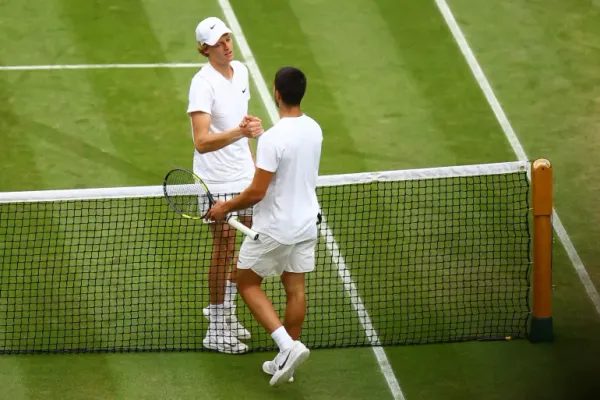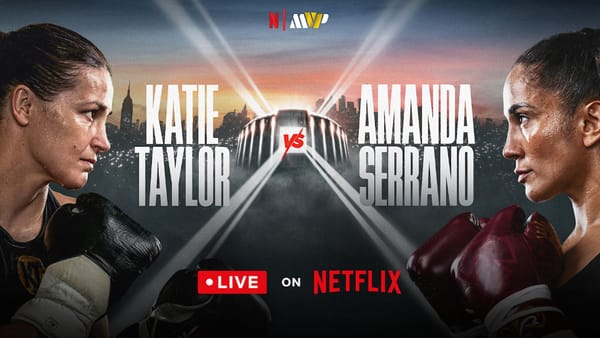Flags at Odds: How Iran–Israel Tensions Reshape Global Athletics
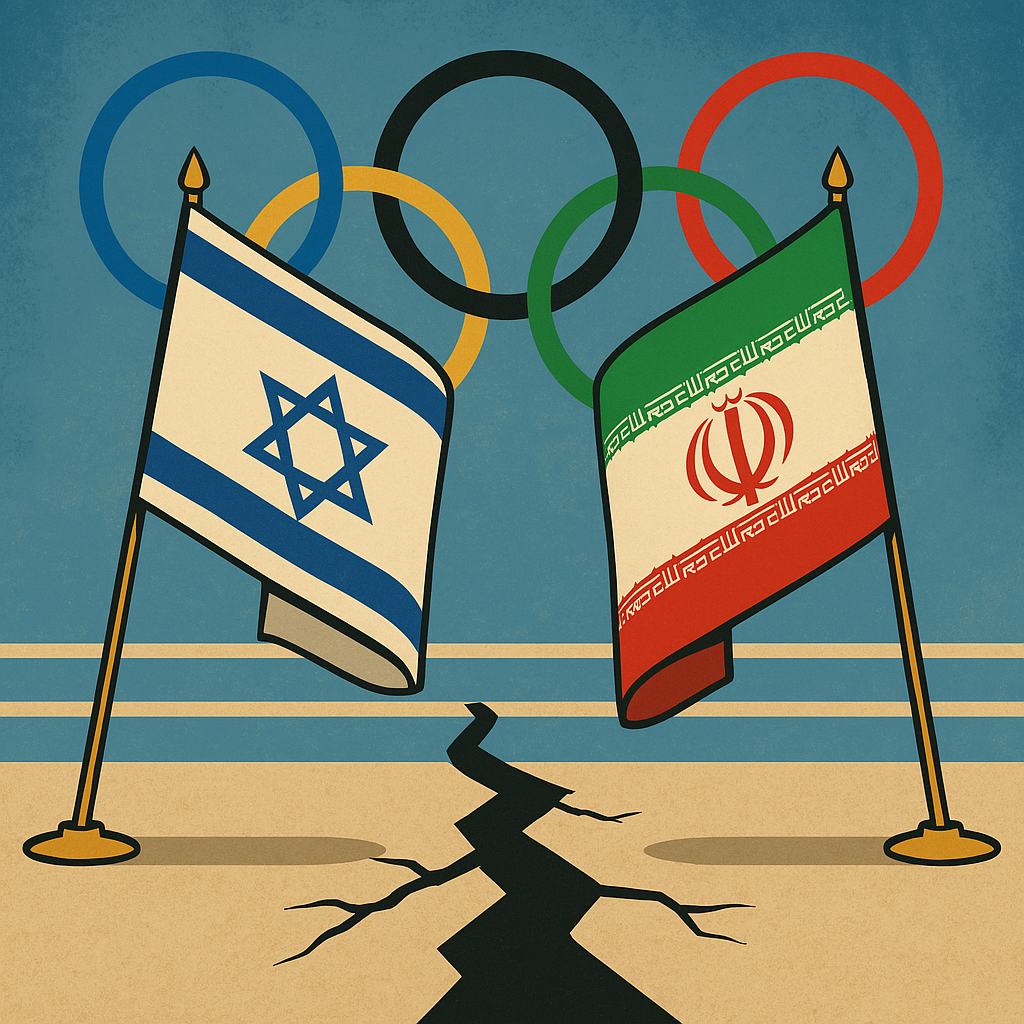
When Politics Leap the Podium
International sport has long been imagined as a space where geopolitical divides can be momentarily set aside in the name of fair competition. Yet, the enduring conflict between Iran and Israel proves that political boundaries often reassert themselves even in supposedly neutral arenas. Over the past several decades, Iran's state-enforced boycott of Israeli athletes has resulted in athlete defections, disqualifications, and widespread disruption across multiple sports. This article explores the documented consequences of Iran's policy and the inconsistent response by international sport federations, grounded entirely in verifiable evidence.
The Mollaei Case: Judo at the Center of Political Pressure
The case of Saeid Mollaei, an Iranian judoka, illustrates how deeply political interference can undermine sporting values. At the 2019 World Judo Championships in Tokyo, Mollaei revealed that he was pressured by Iranian sports authorities to intentionally avoid a match with Israeli judoka Sagi Muki. Instead of complying, Mollaei lost his semifinal match, defected to Germany, and later received Mongolian citizenship (BBC, 2019). His public stance against political interference resulted in Iran's suspension from the International Judo Federation (IJF) for "gross violations" of the sport's non-discrimination principles (IJF, 2019). The Court of Arbitration for Sport (CAS) later affirmed that Iran had committed systemic violations, although it recommended that IJF reassess the severity of its indefinite suspension (CAS, 2021).
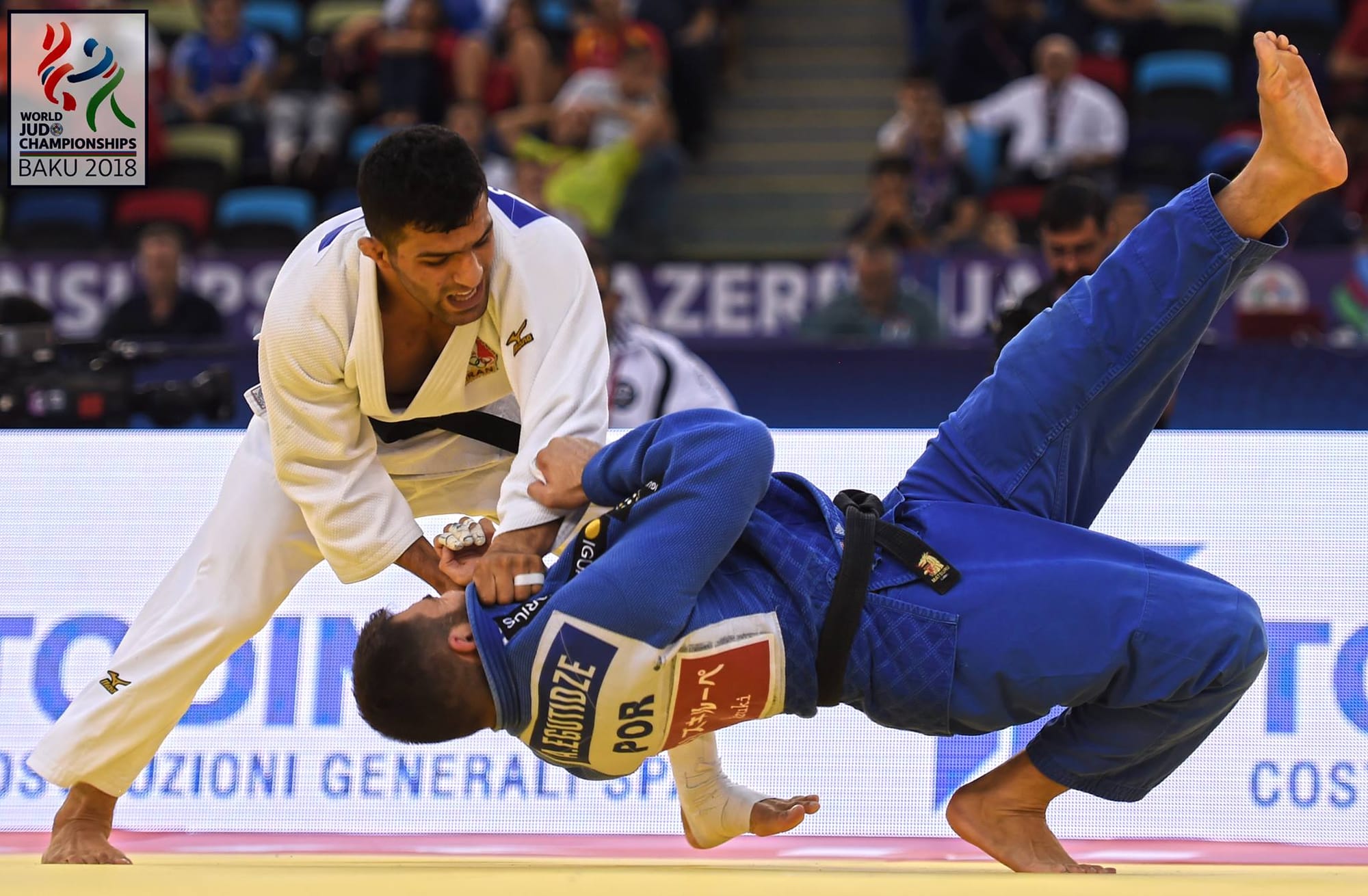
Chess and Citizenship: Firouzja and the Cost of Compliance
Mollaei's story is far from unique. In chess, Iran has maintained a similar policy of non-engagement. In 2019, teenage prodigy Alireza Firouzja renounced his Iranian citizenship after being prevented from playing Israeli opponents, choosing to compete under the neutral FIDE flag before eventually joining the French national team (The Guardian, 2020). The international chess federation, FIDE, has warned Iran that such discriminatory practices threaten its standing in the sport. Other players, such as Aryan Gholami, also forfeited matches, often receiving domestic praise from Iranian leadership, including Supreme Leader Ayatollah Khamenei (Chess.com, 2023).

A Pattern Across Sports: Wrestling and Olympic Judo
This political boycott spans decades. In the 2004 Athens Olympics, Iranian judo champion Arash Miresmaeili reportedly entered his weigh-in overweight, allegedly to avoid facing an Israeli opponent. While he was disqualified, Iranian authorities celebrated him and even awarded him the same financial prize as a gold medalist (New York Times, 2004). In wrestling, Taleb Nematpour reportedly withdrew from the 2011 World Wrestling Championships to avoid a similar encounter (UWW, 2019).
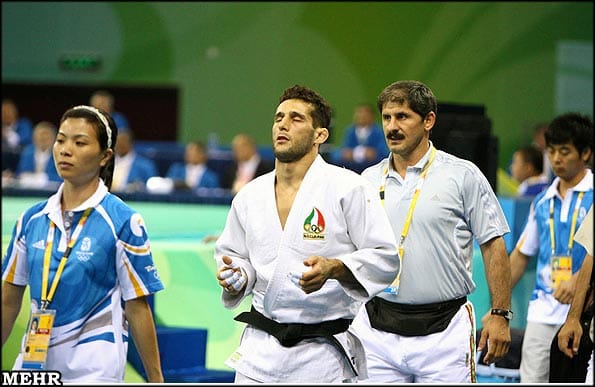
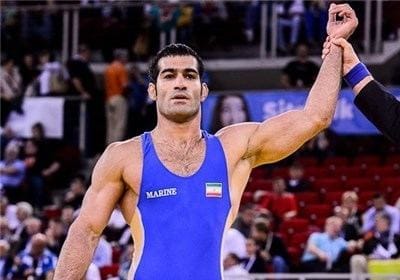
Inconsistent Enforcement: A Global Sporting Dilemma
These incidents have elicited inconsistent reactions from international sports bodies. The IJF has taken the strongest stance, issuing a suspension and requiring reforms. FIDE issued warnings and oversaw the migration of players like Firouzja. Meanwhile, organizations such as United World Wrestling (UWW) and World Taekwondo have tended to respond with minimal disciplinary action. The International Olympic Committee (IOC) has intervened only when Olympic qualification is directly at stake, typically deferring to the individual federations.
The Human Cost: Athletes Caught in the Crossfire
The personal toll on athletes has been profound and multifaceted. Saeid Mollaei, once a national hero in Iran, was branded a traitor after choosing integrity over compliance. He not only lost the ability to represent his home country but also faced exile, personal threats, and a complex legal path toward rebuilding his athletic identity under another flag. His story is emblematic of the agonizing choices athletes must make when forced to navigate between state loyalty and career aspirations.
Alireza Firouzja, who was seen as the future of Iranian chess, chose to relinquish his nationality entirely to pursue a fair competitive landscape. The emotional and cultural cost of that decision is immense, leaving behind family, language, and national recognition for the uncertain path of neutrality or adoption by another country.
For many athletes, these decisions come with permanent consequences. Over a dozen top Iranian chess players have either defected or switched federations, while others—across judo, wrestling, and taekwondo—have faced career stagnation due to policies beyond their control. The burden extends beyond missed matches; it means disconnection from one's support system, limited access to training facilities, and the psychological weight of state-imposed alienation.
Meanwhile, Israeli athletes also experience the impact of these boycotts. Despite qualifying for global tournaments, many are forced to compete in environments where opponents withdraw, refuse to engage, or offer silent protests. These situations strip athletes of meaningful competition and tarnish the values of sport as a level playing field. In both cases, athletes become instruments or victims of broader political agendas, their identities politicized against their will.
Implications for the Integrity of Global Sport
The impact on global sport is equally troubling, with the very concept of meritocracy being eroded when political mandates outweigh performance. Competitions that should serve as showcases of excellence and unity become theaters for diplomatic maneuvering, distorting rankings, seeding, and tournament outcomes.
The lack of consistent enforcement across international federations undermines the legitimacy of athletic governance. Some federations—like the IJF—have issued suspensions, while others merely warn or look away. This inconsistent application of the rules creates confusion and weakens the authority of international institutions that claim to uphold the principles of equality, fairness, and global cooperation.
Furthermore, the increasing reliance on neutral or refugee athlete status as a solution, though helpful in isolated cases, does not resolve the core issue. These alternatives are temporary and reactive, placing the burden on the athletes rather than addressing the state-level interference that caused the problem. In the long term, allowing politically motivated withdrawals to persist sets a dangerous precedent: that the values of sport are flexible when faced with national interest.
If left unchecked, this erosion of fairness may deepen distrust in international competitions, diminish athlete morale, and alienate fans who expect authenticity and unity on the world stage. Sport, once a bastion of cooperation across borders, risks becoming another casualty of global division unless its institutions take bold, consistent action.
Reform and Responsibility: What Should Change?
Addressing the politicization of sport requires a comprehensive overhaul of how international federations handle discrimination and state interference. While some organizations, like the IJF and FIDE, have demonstrated a willingness to enforce standards, a piecemeal approach leaves too many athletes vulnerable and undermines the credibility of international competition.
Proposed reforms should include:
- Universal Enforcement of Anti-Discrimination Protocols: All sport federations should be required to adopt and apply uniform anti-discrimination rules, with automatic penalties for politically motivated forfeits or withdrawals.
- Independent Review Panels: Federations should establish neutral committees to review cases where athletes refuse to compete based on nationality. These panels must operate independently of state influence and federation politics to ensure fair judgments.
- Protected Athlete Status: Athletes who face credible political retaliation at home should have the option to compete under a neutral or refugee flag without forfeiting eligibility or future career prospects. This would allow them to continue participating without endorsing political policies they cannot control.
- Stronger IOC Oversight: The International Olympic Committee must move beyond symbolic statements and adopt proactive monitoring and enforcement mechanisms. This includes public accountability reports and coordinated penalties for federations that allow or encourage discrimination.
- Sanctioning State Interference: Where evidence supports systematic state interference, federations should be empowered to sanction national committees or ministries—not just athletes or sport federations—through funding cuts, bans from events, or suspension from governing bodies.
- Athlete Advocacy Bodies: Creating formal channels for athletes to report political coercion, supported by legal protections and representation, would provide a safeguard against retribution and ensure their voices are heard.
Without these reforms, the risk remains that politics—not performance—will continue to dictate the outcomes of international sport. The path forward demands not just rule changes but a collective will to uphold the founding ideals of global athleticism: fairness, unity, and competition without borders.
When Nationalism Overtakes the Podium
The Iran–Israel conflict has highlighted how geopolitical agendas can persistently intrude upon spaces intended to foster unity and cooperation. Rather than functioning as a neutral arena, global sport has become a battleground where political decisions override athletic competition and merit. Athletes—often caught in the crossfire—pay the highest personal and professional price, as careers are interrupted, identities are reshaped, and opportunities are denied not by ability, but by nationality.
This politicization threatens to erode trust in the institutions that govern international sport. When federations enforce rules inconsistently or yield to political pressure, they send a message that fairness is negotiable. The absence of a universal enforcement framework, even as landmark events like the 2026 FIFA World Cup and 2028 Los Angeles Olympics approach, underscores the urgency for reform.
True progress will require more than symbolic gestures. It demands that federations implement enforceable, transparent anti-discrimination policies and that the Olympic movement recommit to its ideals of equality and unity. Without decisive action, the dream of global sport as a space for peace and mutual respect may continue to be compromised.
In the words of Israeli journalist Yossi Melman: "The Olympic motto is ‘Faster, Higher, Stronger – Together.’ But that last word is the hardest to keep" (Melman, 2022).
Sources
- BBC News. (2019). "Iranian judoka Saeid Mollaei defects." https://www.bbc.com/sport/judo/49500836
- International Judo Federation (IJF). (2019). "Iran Suspended by Judo Federation." https://www.ijf.org/news/show/iran-suspension
- Court of Arbitration for Sport (CAS). (2021). "Ruling on Iran Judo Ban."
- The Guardian. (2020). "Alireza Firouzja leaves Iran over Israel boycott." https://www.theguardian.com/sport/2020/jan/04/alireza-firouzja-iran-israel-chess
- United World Wrestling (UWW). (2019). "Monitoring Discriminatory Withdrawals."
- Chess.com. (2023). "Iranian Chess Players Resign Over Policy." https://www.chess.com/news/view/iranian-players-leave-federation
- New York Times. (2004). "An Iranian Judoka’s Symbolic Protest." https://www.nytimes.com/2004/08/17/sports/olympics/an-iranian-judoka-s-symbolic-protest.html
- Melman, Y. (2022). "Commentary on Olympic Neutrality." Haaretz.



